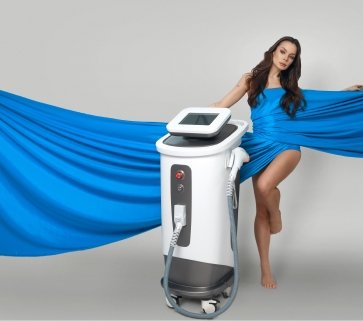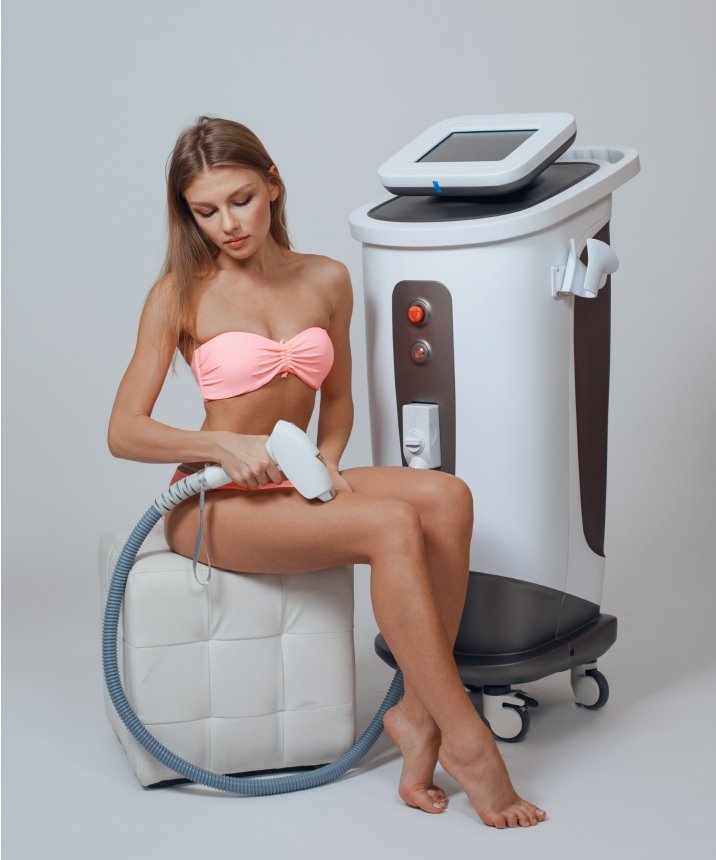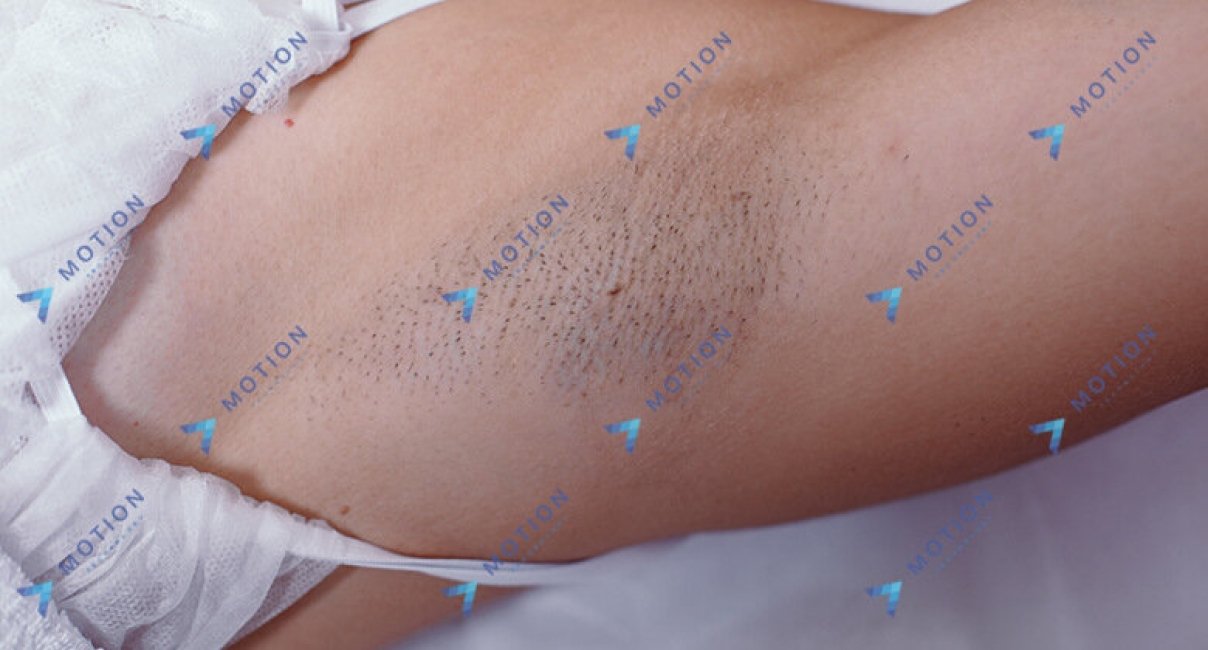








One day before the scheduled procedure, it is necessary to shave the hairs in the future treatment area. But it all depends on the individual hair growth rate. When you come for hair removal, their length should be no more than 1 mm. In this case, the laser hair removal procedure will be as effective and painless as possible.
Before going to the Clinic, you need to wash off your decorative and skincare cosmetics, medicinal gels and ointments. The laser hair removal specialist will definitely treat the skin with an antiseptic.
In order to achieve the desired results from hair removal and forget about hairs forever, you need to undergo a COURSE of laser hair removal, consisting of 7 to 14 procedures (everyone is individual and depends on the zone and your hormonal levels).
What is the reason for this, and why can’t all the hairs be removed at once? Typically, in healthy people, approximately 60-90% of hair is in the anagen stage, 1-2% in the catagen stage, and 10-40% in the telogen stage. It turns out that at any given time, all hair is in different stages of the growth cycle, which leads to the maintenance of hair growth.
Hair follicles are most vulnerable to laser hair removal only in the anagen stage - the period of active hair growth! So, maintaining an interval of 28-30 days (enough time for dormant hairs to enter the anagen stage), with each procedure the hairs will become less and less.
Only the course can produce amazing results. And if you are promised to remove all your hair immediately and forever, this is from the realm of fantasy. So far, such technologies do not exist.
1. Pregnancy and lactation. Important: breastfeeding mothers, starting from the fourth month after childbirth, can already have laser hair removal, with the exception of the armpits and nipple areas
2. Skin diseases. In the acute stage (eczema, acne, psoriasis)
3. Vitiligo
4. Herpes infection until stable remission
5. Diabetes mellitus in the stage of decompensation
6. Blood diseases
7. Injured skin in the planned treatment area: burns, scratches, abrasions
8. Taking certain antibiotics and medications that can increase skin sensitivity to sunlight. Be sure to list to the specialist all the medications you are taking before performing laser hair removal procedures.
9. Oncological diseases. Moreover, the reason here is not the mythical “irradiation” from the laser, but the mechanical consequence of the procedure. Laser flashes promote increased blood circulation in the skin, and this is contraindicated for cancer, so as not to stimulate the growth and reproduction of pathogenic cells
10. Naturally, a fresh, intense tan may be a contraindication to laser hair removal. Moreover, it is not so important whether it was obtained in the sun, in a solarium or self-tanning. It is better to postpone the laser hair removal procedure for 7-10 days after tanning.
The skin after laser hair removal looks clean and smooth, but you need to understand that it has experienced serious stress and needs additional protection.
• Do not visit the solarium, sauna or bathhouse.
• Do not massage (on the treated area).
• Do not swim in pools or take jacuzzi baths or any prolonged water treatments.
• Do not engage in sports or anything that involves intense physical activity, to avoid intense work of the sweat glands.
• Do not take an intensely hot shower or, especially, a bath.
• Do not use scrubs or other products that irritate the skin (including those containing alcohol, abrasives, etc.).
• Do not sunbathe (even with sunscreen) for the first 2 days after the procedure.
Our skin, like our hair, contains melanin. During the procedure, the skin is also exposed to the thermal effects of the laser beam. And each person reacts differently to the thermal effects of the laser: some are calm and without redness, others have redness. This is a normal reaction and there is no need to be alarmed. Redness subsides a few hours after the procedure. ⠀ But in any case, the skin is irritated and factors such as heat exposure, sweating, chlorinated pool water, and rubbing with a washcloth can cause irritation.